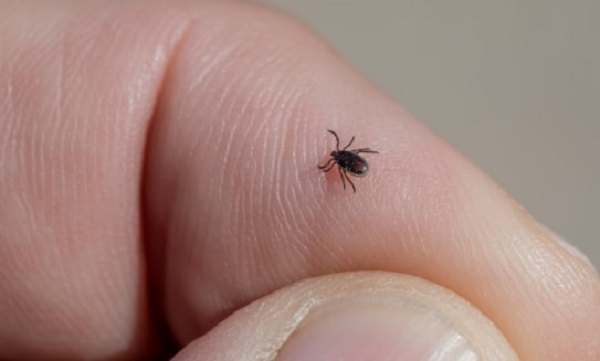 Credit: LIH
Credit: LIH
The Luxembourg Institute of Health (LIH) has launched a nationwide study on tick bites causing red-meat allergy.
The Molecular and Translational Allergology group at the LIH is calling on members of the public to participate in a new research study ("ImmunoGal") focused on understanding tick bites and their possible link to red-meat allergy, a poorly understood condition known as Alpha-Gal syndrome.
LIH researchers are inviting individuals who have recently been bitten by a tick to bring it in and participate in the study.
LIH noted that red-meat allergy, or Alpha-Gal syndrome, is a potentially life-threatening condition triggered by eating mammalian meat or other products such as innards. Unlike most food allergies, symptoms typically appear several hours after consumption. The most frequent symptom is a skin reaction, but many patients experience combined symptoms such as skin, gastrointestinal and / or respiratory symptoms. Recent research suggests that tick bites are the key trigger for developing this allergy, yet much remains unknown.
"By studying the immune responses of people right after they are bitten by a tick, we hope to uncover why certain individuals develop allergic sensitisations and others don't," explained Dr Christiane Hilger, project leader and head of the Molecular and Translational Allergology group at the LIH. "Understanding these mechanisms could significantly improve our ability to diagnose, treat and even prevent red-meat allergies and other tick-borne illnesses."
Participants who have been bitten by a tick are asked to contact the LIH and visit the Luxembourg Research Clinic within 48 hours of detecting the bite. A follow-up visit will take place four to six weeks later.
The study will analyse the tick species, screen for pathogens and collect blood samples to observe immune responses over time. A subgroup of participants will be invited to a third visit three months after the tick bite for a complete follow-up at the Allergology unit of the Centre Hospitalier de Luxembourg (CHL).
The ImmunoGal study also aims to answer broader questions, including:
- When and where do people get bitten by ticks?
- Which tick species are responsible?
- How frequently do ticks carry pathogens?
- Why does the immune system sometimes respond with severe allergies?
For more information or to participate, visit the study website at www.lih.lu/immunogal or contact the LIH via email: immunogal@lih.lu or via tel.: 26970-400.









